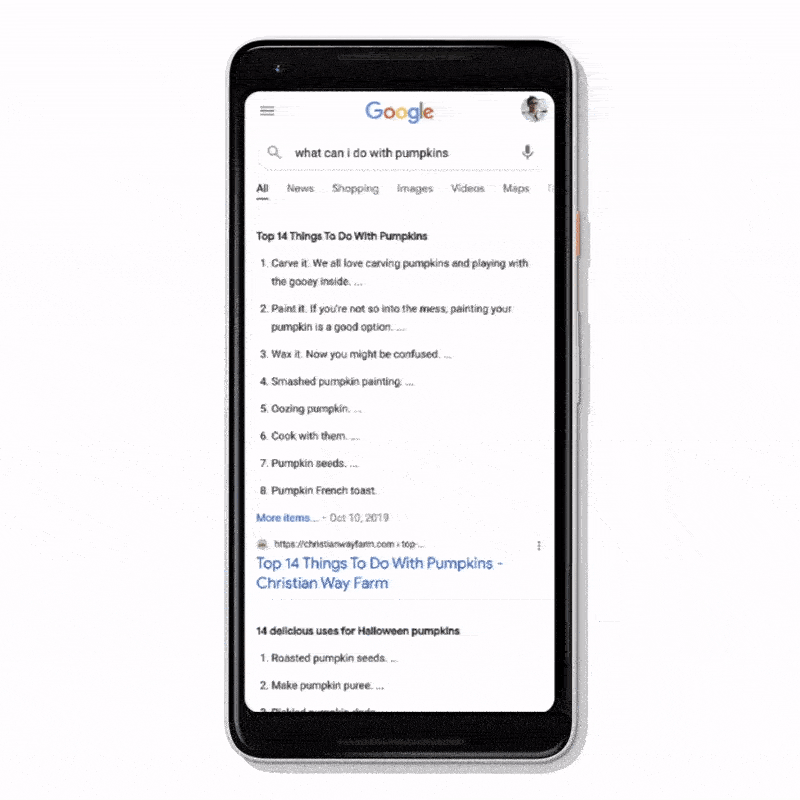11 January 2022
The State of Marketing 2022 - eCommerce
Read More

In some respects, search is one of the easier to predict elements of a successful marketing campaign. Chiefly because of Google’s willingness to inform us of their future plans in conferences, blog updates and Twitter posts.
That being said, there’s more to search than minutely managed, focus-grouped announcements. As any search engine optimiser who’s seen their traffic dip like the latest ride at Blackpool Pleasure Beach will tell you, there’s no knowing how the latest Google algorithm update will affect you and your site. Traffic results aside, we can still let you know what to look out for in the coming year, things to expect and recap any foreshadowing made by the big players.
While there are other search engines out there, no one’s asking Jeeves anything anymore and the only Bing getting any attention these days seems to be the strip club frequented by Tony Soprano. It’s a tough world out there for anyone looking to set up a search engine, and unless you can turn your business into a verb and get everyone to start saying, “Why don’t you just alternative search engine it?”, chances are SEO is going to continue to revolve around Google.
In fact, I’m going to put money on it; this time next year, we’ll still be talking about how easily those men and women working out of that Californian valley can still make anyone with a Google Analytics account baulk at their decisions.
Speaking of decisions, Google’s Search On ’21 gave us an insight into some of the changes they’re bringing to the search engine results page or SERP. Chances are, the more observant of you have already noticed some changes to the results page just while going about your daily searches.
2021 saw the introduction of an algorithm tweak that ranks content segments on pages and brings relevant passages into the SERP; this preview into a site’s content allows users to window shop for information without actually having to click onto the site.
 While this looked as though it might leave a significant dent in the click-through figures of websites, the changes introduced in 2021 aren’t necessarily bad for traffic. Google also introduced unlimited scrolling in October, which would do away with pages on mobile. While you’d still want to be as high up the results page as possible, it gives links that would otherwise struggle to make it onto the first page more of a look in.
While this looked as though it might leave a significant dent in the click-through figures of websites, the changes introduced in 2021 aren’t necessarily bad for traffic. Google also introduced unlimited scrolling in October, which would do away with pages on mobile. While you’d still want to be as high up the results page as possible, it gives links that would otherwise struggle to make it onto the first page more of a look in.

As for 2022, Google’s future updates are designed around helping users on their search journey. New functions will allow the search page to encourage you to narrow down your searches or continue exploring. Few organisations know how people search better than Google, so when it comes to helping users explore a new topic, the snippet features Google plans to introduce should help in the process.

As far as trends go, we’re expecting to see further changes happen in and around the SERP, continuing Google’s focus on keeping the user searching. We can expect to see further changes for image results, improved video integration in SERP (look out for videos being treated much the same way as passage ranking, providing users with a small section of longer videos), and changes to how users search for eCommerce products.
Google’s attempt to truly get to grips with language and how people search falls on the shoulders of MUM. There’s a joke here about nerds having to get their mums involved, but MUM actually stands for multitasking unified model, and besides, as Americans, they probably wouldn’t get it.
However, what they do get is that people don’t search for things the same way they speak or ask questions. For example, imagine you wanted to know when spaghetti was invented (the 5th century, FYI); how would you go about finding the answer?
Well, if you were face to face with a pasta historian, a man obsessed with the pasta of the past, you’d simply ask, “Do we know when spaghetti was first invented?” and he’d hopefully tell you between mouthfuls of ancient tagliatelle. But when it comes to asking Google, we tend to search using keywords relevant to the information we want to find, regardless of whether they make grammatical sense as a sentence. E.g. “spaghetti history”.
When we see examples of searches written as we might speak them, they look naive and amateurish. Yet as MUM’s multimodal processing model begins to understand how language works and how words relate to one another, the need to pare back our searches becomes less necessary. MUM is being developed to allow for accurate results, encouraging users to be definitive in asking what they want.
While unique, well made and targeted content has always been a core component of a successful SEO campaign, it’s never been more essential than it is at the start of 2022, and we predict it’ll only continue to grow in importance. As marketers in 2022, this means creating content that stands out from the competition, carving out a niche, and answering questions no one else does.
Making the most of the SERP changes we’ve discussed above means targeting what will be MUM’s capability for recognising valuable and accurate content by providing a greater variety of content. By bringing together images, videos, audio and text, you can create the exemplary content that will be key to increasing your chances of visibility on the search results page.
It’s also vital to understand the search intent that leads to your pages – helping you immensely when deciding on what to provide for your content because ultimately, you’re going to want to give answers to questions.
2021 saw a host of updates that directly impacted the amount of data that could be presented with your search result, from FAQ markup to heavier weighting for product reviews. The impact of this and similar future updates only emphasises the need for marketers to be making the most of structured data. This is particularly relevant for e-commerce sites, where 2022s focus should be on building an excellent reputation on third-party and industry sites as well as wikis, maintaining an optimised Google My Business profile and prioritising detailed schema markup.
Integrating your Google My Business Profile listing with structured data and your product feed will help retailers improve the customer experience, specifically focusing on the ‘product’ schema for eCommerce, but also ‘services’ markup for businesses delivering a service. Connecting physical stores with eCommerce experiences by providing ‘in stock’ data will also be essential, blending the physical business with the digital as the user begins to use services like Google Lens more actively.
Last but not least, investing in high-quality imagery will be needed as visual content will take more space on the SERP. Unique images also factor into user experience, as standout lifestyle images resonate with an increasingly savvy audience, who can instantly tell if something is genuine or staged. Google will increasingly reward sites that use original imagery, and as more sites adopt this process, Google Lens then learns more, becoming more efficient as a service and more popular with the user.
So as you can see, it’s set to be a busy year for everyone in SEO, no doubt a large chunk of which will involve playing catch up. But if you make smart decisions early on, put users first, and adapt to the times, it’ll undoubtedly be a fruitful 2022.


Still the same great data driven services, but now with a different name